Your Gifts at Work: July-September 2021
Ghana Health Facilities | AlphaFold Models Leprosy Proteins | CAD-CAM and Online Monitoring at Schieffelin | Lalgadh Digital Records | New WASH Projects | BU Labnet Quality Assessment |
Leprosy Diagnostic TPPs
Oct 14, 2021
Equipping Health Facilities in Ghana
In 2019, as part of our work with the USAID Act to End NTDs | West program, we reported on Ghana’s medical system and its readiness to care for people affected by the disease lymphatic filariasis (LF), which is a neglected tropical disease (NTD) like leprosy. Our report found that even though Ghana had designated health centers to treat LF, those facilities had never been assessed to make sure they can provide full care to people affected. This August, we coordinated the first facility assessment with Ghana’s national NTD Program! Projects like this ensure that every level of Ghana’s medical system, including local clinics, have what they need to help people affected by NTDs like leprosy.
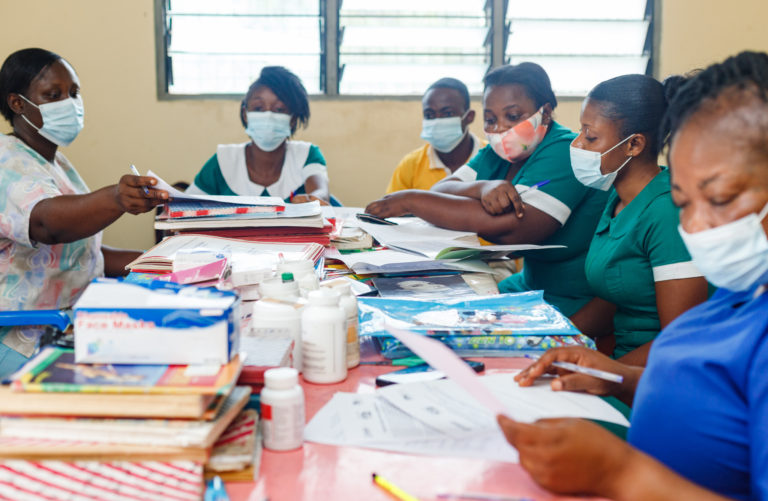
Health facility assessments make sure that people with leprosy and related diseases can access the care they need!
Using Google’s AlphaFold to Study Leprosy
To know if drugs are effective against a bacterial disease like leprosy, scientists have to study the bacteria’s protein structures, then learn how a drug impacts those proteins. Learning about bacteria proteins is a big part of disease prevention and treatment. Now, we have access to cutting-edge technology to learn about leprosy proteins!
Our director of research and innovation, Dr. Sundeep Chaitanya, is a researcher with Cambridge University’s Blundell Group Laboratory, studying leprosy bacteria through 3D modeling. The Blundell Group recently used Google’s AlphaFold 2 tool to study leprosy bacteria proteins. AlphaFold 2 has incredible accuracy in predicting protein structures: combined with Cambridge’s other resources, the Blundell Group used AlphaFold 2 to model all 1,605 proteins of Mycobacterium leprae in just a month. Without these tools, it could take the same amount of time to accurately model just one protein complex! Access to these new resources will give us more information than ever about leprosy bacteria and effective treatments.
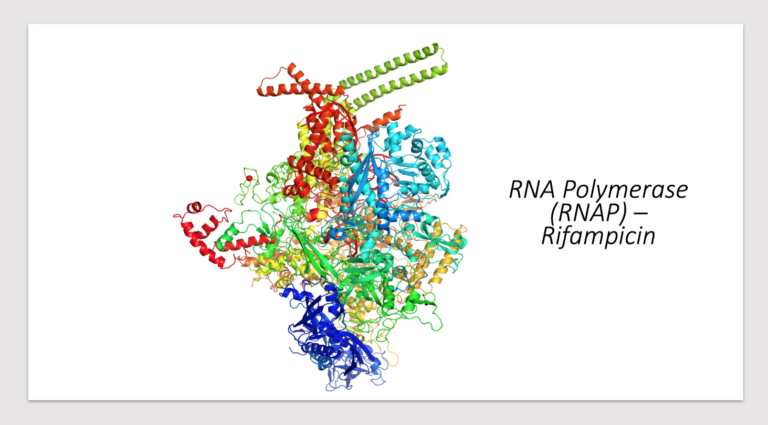
An example of the 3D modeling of a leprosy drug on the HARP database.
New Tools Prevent Disability and Injury from Leprosy
Thanks to your support, our Christian partner hospital in India, the Schieffelin Institute, has two new tools to protect people affected by leprosy from injury or disability. One of these tools is a new machine to create customized footwear for people affected by leprosy or diabetes. The CAD/CAM machine (computer-aided design/computer-aided manufacturing) is an incredible tool: it means less manual labor for the staff and fewer follow-up visits for patients! The new process uses a portable machine to scan the patient’s foot. The orthotics staff review the scan and edit a shoe design to meet the patient’s needs, then send the design to the milling machine to cut the shoes to the exact specifications.
After people are released from leprosy treatment or a surgery, it’s almost impossible for health care providers to check on their progress. Schieffelin’s former patients live all over India, and it isn’t easy for them to return for help. The second new tool at Schieffelin is an online system to better monitor their patients’ progress. Local health care workers will visit the patients and enter data in a smart phone app. From the app, the information goes to an online system where India’s national leprosy program, Schieffelin, and other leprosy hospitals can review it. When this tool is developed, leprosy hospitals can catch disabilities early and correct them sooner!
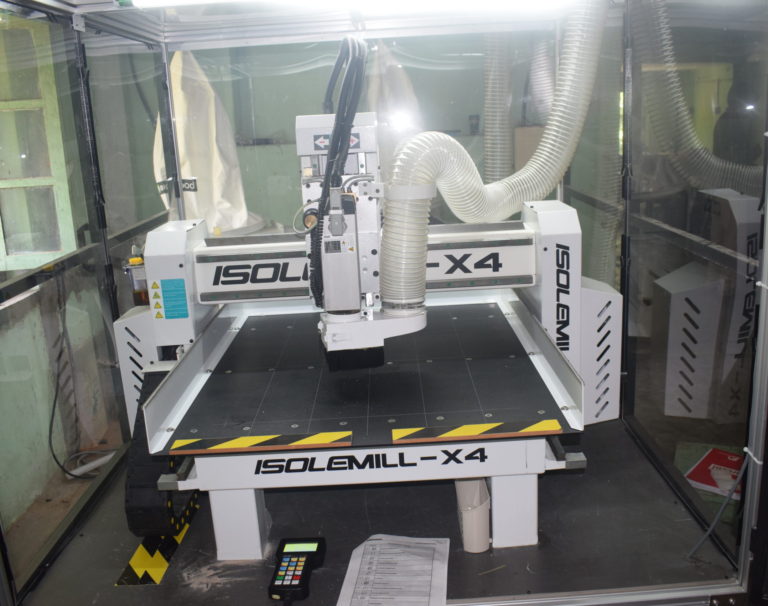
Schieffelin’s new CAD-CAM machine produces high-quality footwear for people affected by leprosy.
New Software Helps Nepal Partner Serve More People
Before Nepal’s government called for a national lockdown in May, our Christian partner, Lalgadh Leprosy Hospital, usually saw 200-300 patients every day. With only a paper records system, it was challenging for staff to manage the large number of patients and make sure every visitor received timely attention. Now, Lalgadh has new tools to manage its caseload! The EasyCare management software is up and running, and Lalgadh’s outpatient visitors are saying that wait times have gone down by a third! EasyCare was developed and installed by two young Christian entrepreneurs, who have shared it with 35 hospitals across Nepal and India.
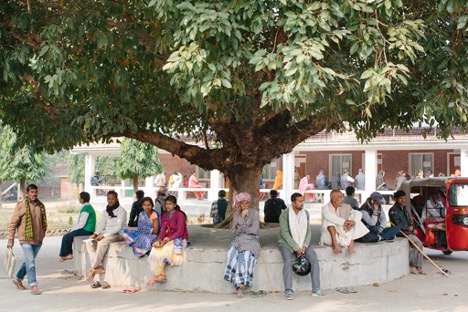
With their new software, Lalgadh Leprosy Hospital can better serve its high numbers of daily visitors!
New WASH Projects Underway in India and Nepal
Despite challenges related to COVID-19, our women-led water, sanitation and hygiene (WASH) project in Bihar, India finished training 130 women. We work with our partners LEPRA Society and the Indian Institute of Public Health to improve WASH quality and provide disease prevention and care in communities where diseases like leprosy continue to destroy lives.
Thanks to your support, we also have new, ALM-funded technology to make this project more effective. As these women visit local homes and neighborhoods to discuss sanitation and disease prevention, they are using a new smartphone app to record information. The app helps us better understand these communities and advocate for effective care.
The new WASH project in Nepal will take place in two provinces reaching more than 80,000 people! With your generous gifts, and our partners Nepal Leprosy Trust and Nepal Leprosy Fellowship, thousands of people will learn important health practices that help prevent infectious diseases like COVID-19 and leprosy.
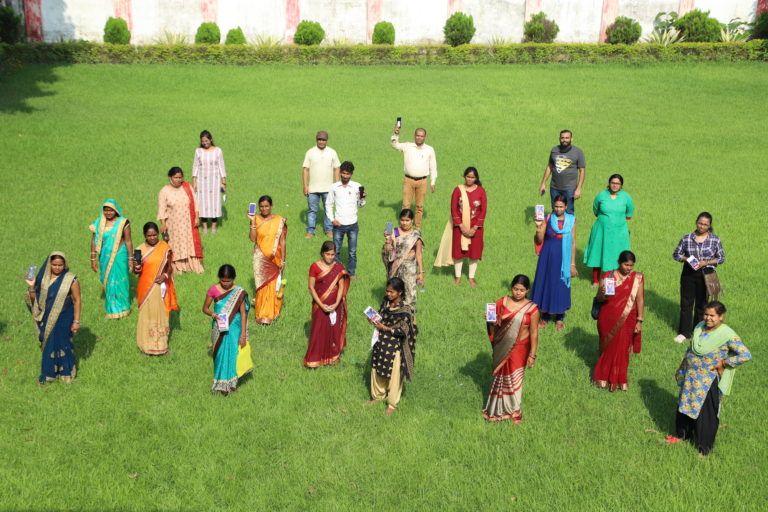
As the CRPs visit local homes, they’re using a new ALM-funded smartphone app to record information.
Landmark for the Largest African Lab Network
With your generous support, we formed the Buruli Ulcer Laboratory Network (BU LABNET) in 2019, along with the World Health Organization (WHO) and the Pasteur Center of Cameroon. BU-LABNET is the largest lab network in Africa, with 12 labs in nine countries, all committed to the same high-level standards for Buruli ulcer (BU) testing and lab technician training. BU-LABNET passed an important landmark this summer: coordinating its own quality assessment. The assessment program measures how each lab performs in test accuracy and processing time, ensuring that they can deliver quality results. Your gifts make it possible for people like Emmanuel and his father to get faster and more accurate test results and access the care they need!
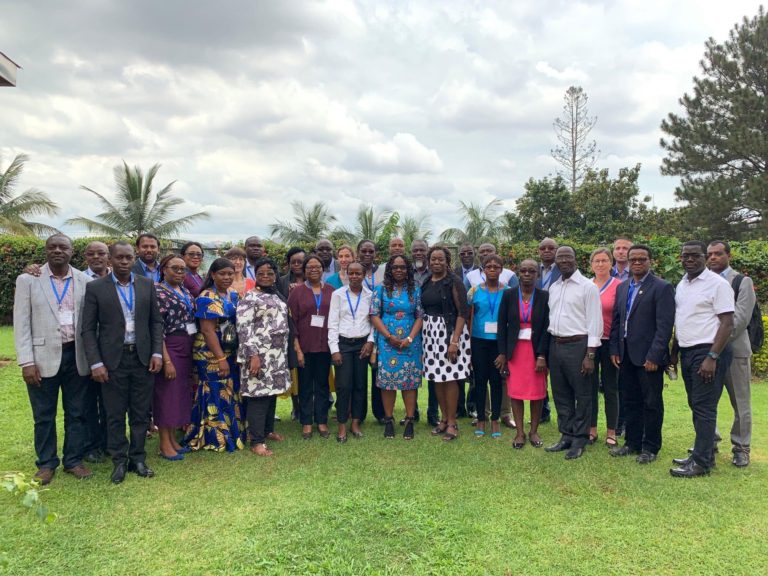
Your support helps the BU Lab Network make a difference for people affected by Buruli ulcer across West Africa.
Improving Leprosy Diagnosis Worldwide
With your support, we are creating new standards for diagnosing leprosy. When scientists develop a new diagnostic tool, they make a list of what the tool should include, how it should work, and what kind of results it should give. This list is called a target product profile (TPP), and it guides scientists as they create new products. However, there aren’t any TPPs for diagnosing leprosy and a few other neglected tropical diseases (NTDs) that affect people’s skin.
To solve this problem, our director of research and innovation, Dr. Sundeep Chaitanya, and a team of other experts created the very first two TPPs for leprosy diagnostics. Now the World Health Organization will review the TPPs and then they can be adopted as global standards. This is ground-breaking work to improve leprosy treatment—thank you for making it possible with your support!
